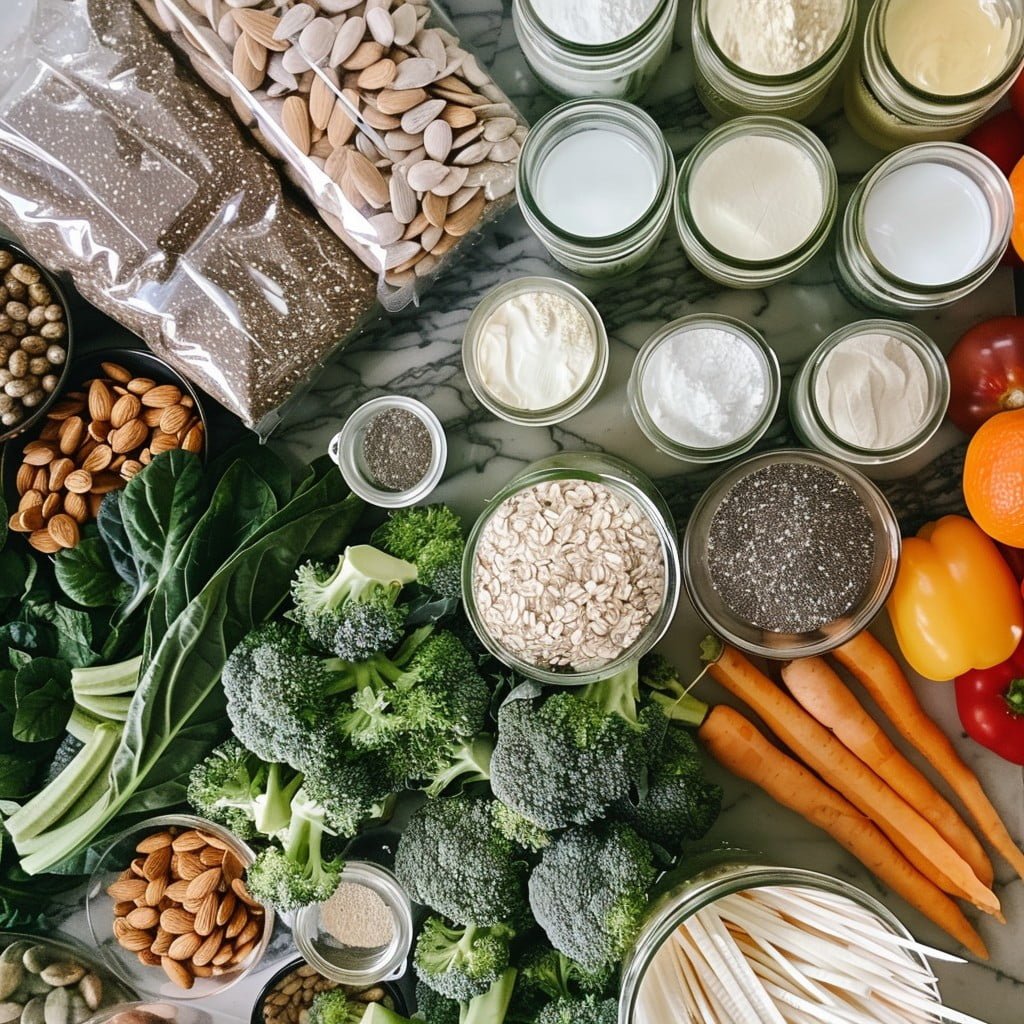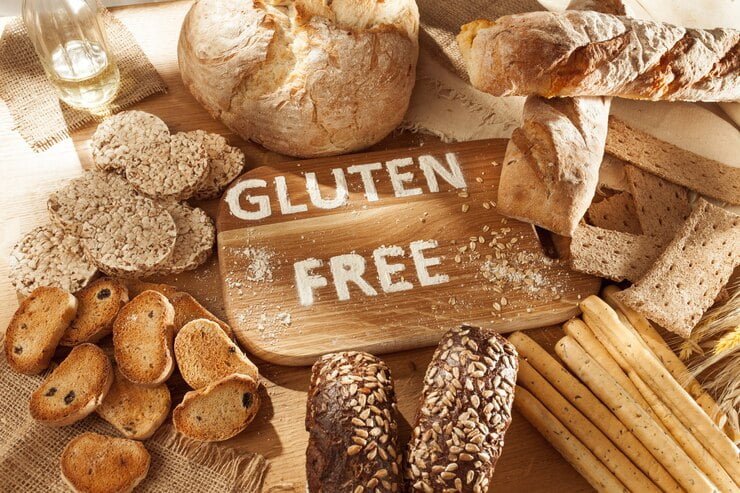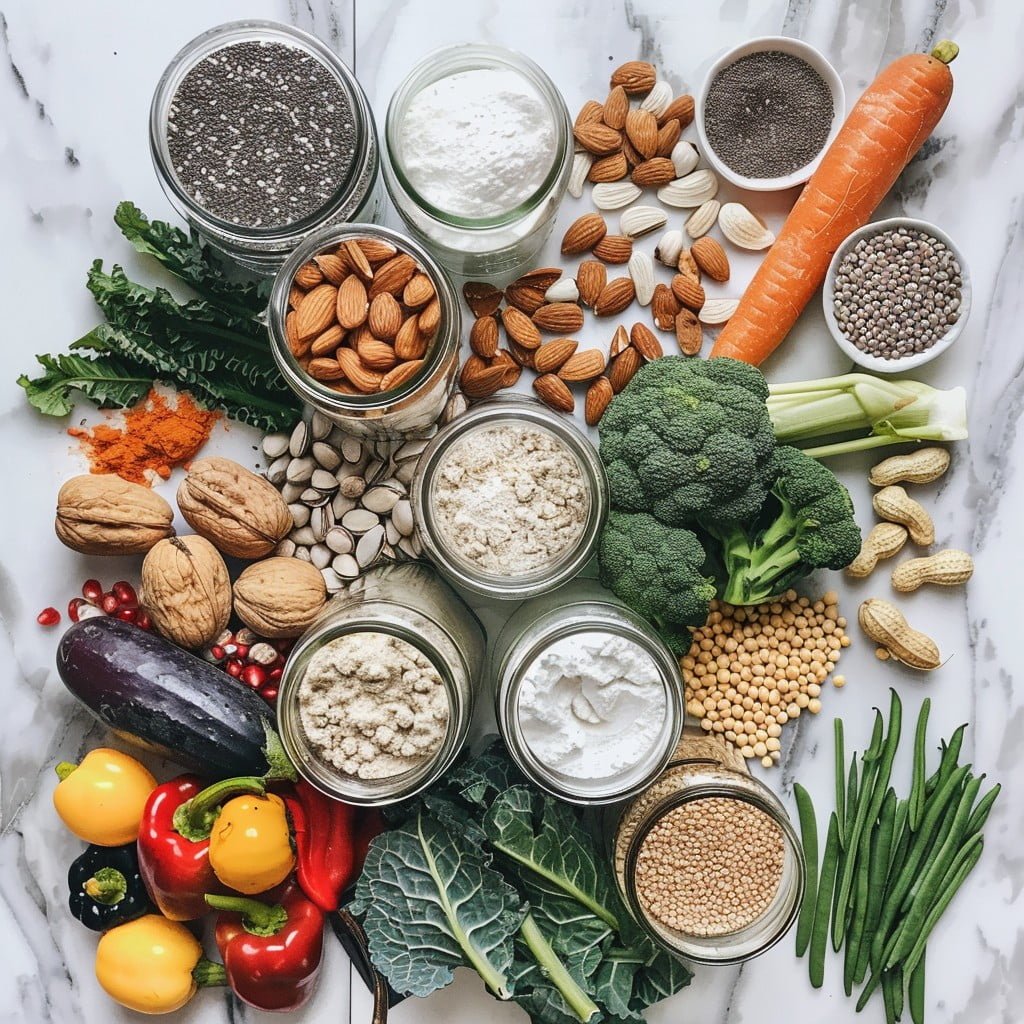Table of Contents
Is a Keto Diet Gluten free
The ketogenic (keto) diet has garnered attention for its potential benefits in weight loss, improved energy levels, and enhanced metabolic health. As more people explore this high-fat, low-carbohydrate dietary approach, a common question arises: Is the keto diet gluten-free? In this extensive guide, we will delve into the relationship between the keto diet and gluten, examining how to navigate your food choices effectively.
Here’s more detailed research on how to ensure is a ketogenic diet gluten free, including practical tips, considerations and potential pitfalls.

Keto Diet Basics and Gluten
What is the Keto Diet?
The keto diet is a low-carbohydrate, high-fat diet that encourages the body to enter a state of ketosis. In ketosis, the body becomes efficient at burning fat for energy instead of carbohydrates. This metabolic shift is achieved by significantly reducing carbohydrate intake to approximately 5-10% of total daily calories, while increasing fat intake to around 70-75%. Protein intake typically comprises 20-25% of total calories.
The macronutrient breakdown can vary slightly based on individual goals, but the primary goal remains the same: to shift the body’s energy source from glucose to ketones derived from fat.
The Importance of Gluten Awareness
Gluten is a protein found in wheat, barley, and rye. For individuals with celiac disease, gluten can trigger severe autoimmune responses, leading to inflammation and damage to the small intestine. Even those with non-celiac gluten sensitivity can experience a range of symptoms, including digestive discomfort, fatigue, and headaches, upon consuming gluten-containing foods.
For people with gluten-related disorders, adopting a gluten-free diet is essential. This raises the question: Can a keto diet also be gluten-free?
Naturally Gluten-Free Keto Foods
Whole Diet
- Protein:
- Meat: Beef, pork, chicken, lamb, and other unprocessed meats are gluten-free.
- Fish and Seafood: Salmon, mackerel, shrimp, and other fresh seafood are naturally gluten-free.
- Eggs: Whole eggs and egg-based dishes are gluten-free.
- Dairy:
- Cheese: Most cheeses are gluten-free, but always check for additives.
- Butter: Pure butter is gluten free.
- Cream: Full fat heavy cream is gluten free. Check for additives or flavors.
- Vegetables:
- Leafy vegetables: Spinach, kale, arugula and other leafy greens.
- cruciferous vegetables: broccoli, cabbage, Brussels sprouts.
- Other: Zucchini, bell pepper, and asparagus.
- Fats and Oils:
- Oils: Olive oil, coconut oil, avocado oil, and butter are gluten-free.
- Avocado: High in healthy fats and gluten-free.

Gluten Free Keto Flours and Substitutes
- Almond Flour: Made from ground almonds, this is commonly used in keto baking.
- Coconut Flour: Made from desiccated coconut meat, this is another popular gluten-free flour.
- Flaxseed Meal: Used in baking and as an egg substitute in some recipes.
- Psyllium Husk: Often used in keto baking to add fiber and improve texture.
Avoid Gluten in Processed Foods
Commercial Keto Products
- Read Labels: Always check for gluten-free certification. Many keto products are specifically formulated to be gluten-free, but it’s important to verify.
- Hidden Gluten: Some processed keto foods may contain gluten or are manufactured in facilities that handle gluten-containing products.
Condiments and Sauces
- Read Ingredients: Some sauces, dressings and condiments may contain gluten as a thickener or stabilizer. Common culprits include soy sauce (which often contains wheat) and some pre-made dressings.
- Homemade Options: Consider making your own sauces and dressings using gluten-free ingredients.
Benefits of a Keto and Gluten-Free Diet
Combining the keto diet with a gluten-free approach can offer several benefits:
- Weight Loss: Both the keto and gluten-free diets emphasize whole, unprocessed foods, which can promote weight loss by reducing calorie intake and improving satiety.
- Improved Digestion: For those with gluten sensitivities, eliminating gluten can alleviate digestive issues, while the keto diet’s high-fat content may promote better digestion and nutrient absorption.
- Enhanced Energy Levels: Many individuals report increased energy and mental clarity on the keto diet. Removing gluten may further support overall well-being, especially for those who experience fatigue related to gluten consumption.
- Reduced Inflammation: Both gluten-free and keto diets may help reduce inflammation, benefiting individuals with autoimmune conditions or chronic inflammatory diseases.
- Support for Blood Sugar Control: The keto diet’s low carbohydrate intake can help stabilize blood sugar levels, making it beneficial for individuals with insulin resistance or type 2 diabetes. A gluten-free diet can further support this by removing potential inflammatory triggers.
Common Misconceptions About Gluten and the Keto Diet
- All Keto Foods Are Gluten-Free: While many keto-friendly foods are naturally gluten-free, some processed keto products may contain gluten. Always read labels to ensure safety.
- Keto Equals High Saturated Fat: Some believe that the keto diet encourages high saturated fat intake, which can affect heart health. However, healthy fats such as olive oil, avocados, and fatty fish should be prioritized for a balanced approach.
- Gluten-Free Means Healthy: Not all gluten-free products are healthy. Many gluten-free processed foods can be high in sugar and low in nutrients. Focus on whole foods for a balanced diet.
Potential Challenges About Gluten and the Keto Diet
While the keto diet can be gluten-free, there are challenges to consider:
- Limited Food Variety: Following a strict keto and gluten-free diet may limit food choices. Meal planning and preparation can help alleviate this challenge.
- Initial Adjustments: Transitioning to a keto diet may cause temporary side effects, often referred to as the “keto flu.” Symptoms may include fatigue, headaches, and irritability as your body adjusts to burning fat for fuel.
- Social Situations: Eating out or attending social gatherings can pose challenges for those on a gluten-free keto diet. Communication is key—don’t hesitate to ask about ingredient lists and food preparation methods.
The keto diet can indeed be gluten-free, especially when focusing on whole, unprocessed foods and avoiding gluten-containing grains. By being mindful of your food choices and understanding the potential impact of gluten, you can successfully navigate a gluten-free ketogenic lifestyle.
How to Successfully Follow a Gluten-Free Keto Diet
Avoid Cross-Contamination
- Shared Equipment: Use separate kitchen utensils and equipment for gluten-free cooking to avoid cross-contamination.
- Clean Surfaces: Thoroughly clean countertops, cutting boards and cookware to remove traces of gluten.
Eating Out
- Notify Staff: Notify restaurant staff of both your gluten-free and keto dietary requirements. Ask about cross-contamination risks.
- Check Menus: Find restaurants that offer gluten-free options and confirm they can accommodate keto needs.
Nutritional Considerations on the Gluten-Free Keto Diet

Nutritional deficiency
- Common Deficiencies: A restrictive diet can lead to deficiencies in vitamins and minerals such as B vitamins, iron and magnesium. Make sure your diet is rich in nutrient-dense foods or consider a supplement.
- BALANCED DIET: Include a variety of vegetables, nuts, seeds and meats to meet your nutritional needs.
Fiber content
- Low-Carb Fiber Sources: Use gluten-free, low-carb fiber sources such as chia seeds, flaxseeds, and starchy vegetables.
Practical Tips
Meal Planning
PLAN AHEAD:Plan your meals and snacks to include a variety of gluten-free and keto-friendly foods. This reduces the chances of inadvertently consuming gluten-containing foods.
Recipes: Use recipes designed specifically for the gluten-free keto diet to ensure compliance.
Monitoring
Track your diet: Use a food diary or app to monitor your diet and make sure you’re staying within both your carb limits and gluten-free guidelines.
Consultation and support
Health Care Providers
Professional guidance: Consult a dietitian or health care provider for personalized advice, especially if you have specific health conditions or nutritional concerns.
Support Groups
Join communities: Engage with online or local support groups for people on the gluten-free keto diet for additional tips, recipes and encouragement.
FAQ: Is a Keto Diet Gluten-Free?
1. Is the keto diet naturally gluten-free?
Yes, the keto diet can be naturally gluten-free as it emphasizes whole foods like meats, eggs, non-starchy vegetables, and healthy fats, which do not contain gluten.
2. What foods should I avoid on a gluten-free keto diet?
Avoid gluten-containing grains such as wheat, barley, and rye. This means steering clear of bread, pasta, cereals, and most baked goods unless they are specifically labeled gluten-free.
3. Can I consume gluten-free products on a keto diet?
Yes, you can consume gluten-free products, but be cautious. Many gluten-free products are high in carbohydrates. Always check labels to ensure they fit within your daily carb limit.
4. What are some gluten-free alternatives for keto baking?
Gluten-free flours like almond flour, coconut flour, and flaxseed meal are excellent options for baking while adhering to a keto diet.
5. How can I ensure my keto diet is gluten-free when eating out?
When dining out, ask about gluten-free options and how the food is prepared to avoid cross-contamination. Look for dishes that focus on whole foods and are low in carbs.
6. Are there any side effects of combining a gluten-free and keto diet?
Some individuals may experience the “keto flu” during the initial transition to a keto diet. This can include fatigue, headaches, and irritability as your body adjusts to using fat for energy.
7. Can a gluten-free keto diet help with weight loss?
Yes, many people find success in weight loss with a gluten-free keto diet due to reduced calorie intake from eliminating processed foods and high-carb options.
8. Is it possible to have gluten-free keto snacks?
Absolutely! You can enjoy snacks like nuts, cheese, avocado, and keto-friendly fat bombs. Just ensure any store-bought snacks are both gluten-free and low in carbs.
9. Do I need to worry about hidden gluten in processed foods?
Yes, many processed foods may contain hidden gluten. Always read labels carefully and look for products specifically labeled as gluten-free.
10. Should I consult a healthcare provider before starting a gluten-free keto diet?
Yes, especially if you have specific health concerns or conditions like celiac disease or metabolic syndrome. A healthcare provider or registered dietitian can help tailor the diet to your needs.
11. Can I still enjoy my favorite dishes on a gluten-free keto diet?
Yes! With some creativity and ingredient substitutions, you can adapt your favorite dishes to fit a gluten-free keto lifestyle. Many recipes can be modified to use gluten-free, low-carb ingredients.
12. How do I manage social situations where gluten-containing foods are served?
Communication is key. Don’t hesitate to inform your hosts about your dietary restrictions, and consider bringing your own gluten-free keto-friendly dish to share.
By understanding these frequently asked questions, you can navigate the keto diet while ensuring it remains gluten-free and aligned with your health goals. If you have more questions or need specific guidance, feel free to ask!
Conclusion
A ketogenic diet can be gluten-free, but it requires careful selection of foods and ingredients. By focusing on whole, unprocessed foods and reading labels on packaged items, you can stay both keto and gluten-free. Monitoring nutrient intake, avoiding cross-contamination, and seeking professional advice can help ensure your diet is healthy and meets your nutritional needs.


Thanks for sharing. I read many of your blog posts, cool, your blog is very good.
I don’t think the title of your article matches the content lol. Just kidding, mainly because I had some doubts after reading the article.